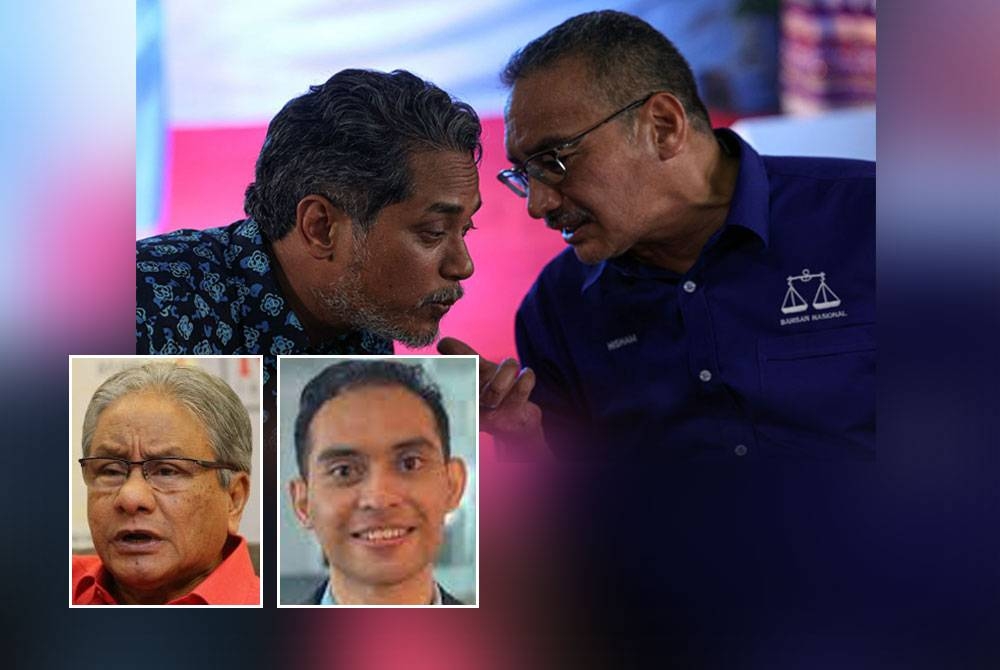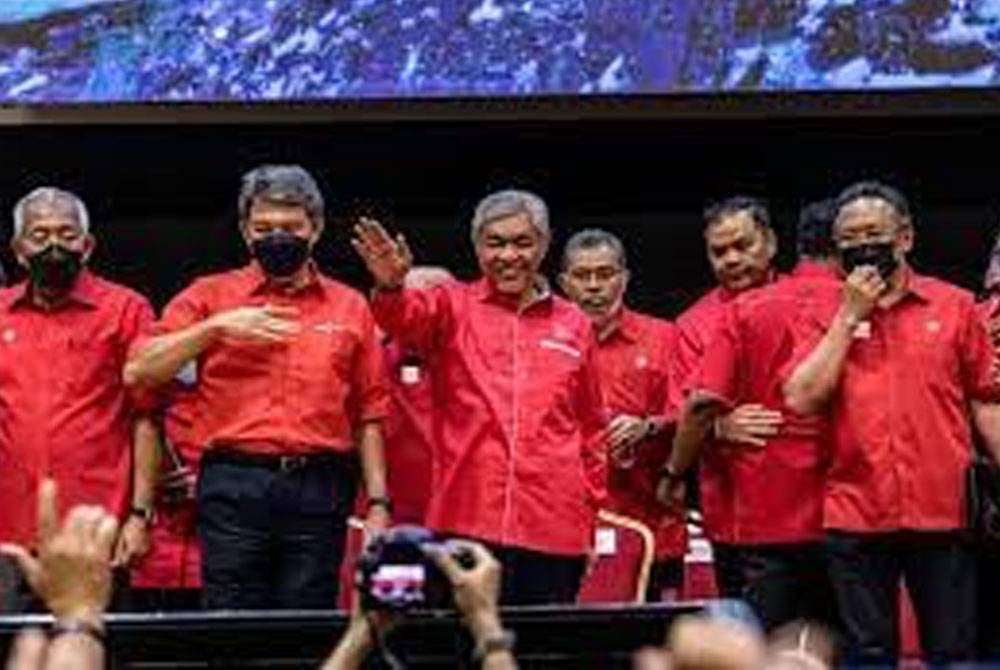Umno purge: Rejuvenation or harakiri?
KHAIRIL ANWAR MOHD AMIN
The oldestv Malay party's democratic practice is quite open despite frequently perceived otherwise by a number of local political observers especailly during former prime minister Tun Dr Mahathir Mohamad's leadership.
The act of Umno's very own founder Datuk Onn Jaafar of resigning as Umno president and immediately leaving the party in 1951 after the party's porposal to open membership to all Malayan citizens regardless of race was rejected by the party is a clear evidence that the presidential power hardlly overshadows the grassroots' voice.
Same goes to Malaysia's first prime minister, Tunku Abdul Rahman Putra Al-Haj who had to drop Umno presidential post in 1971 to make way for his deputy, Tun Abdul Razak to rise as the prime minister after his leadership was criticised.
Besides that, the party cleansing process is not something new. It was proven in 1987 when the Umno leadership crisis between Tengku Razaleigh Hamzah's camp and Dr Mahathir's camp led to the banning of Umno.
Following that, Dr Mahathir revived Umno and got rid of leaders who were loyal to Tengku Razaleigh or better known as Ku Li while the former finance minister later formed the Semangat 46 party.
The second party cleansing process took place during the dismissal of Datuk Seri Anwar Ibrahim who at the time held the position of deputy prime minister and Umno deputy president in 1998.
Dr Mahathir who was then prime minister took disciplinary action against a large number of Anwar's followers including the current Umno president, Datuk Seri Ahmad Zahid Hamidi and detained them under the Internal Security Act (ISA).
The third cleaning process happened during Datuk Seri Najib Razak's tenure as prime minister in 2016.
Burdened by grassroots pressure demanding that the 1Malaysia Development Berhad (1MDB) scandal be clarified by the then BN government, Umno Supreme Council (MKT) at the time agreed to fire Tan Sri Muhyiddin Yassin and Datuk Seri Mukhriz Mahathir and suspend Datuk Seri Mohd Shafie Apdal .
Recently, Zahid as Umno president led by supreme council members to sack and suspend membership of over 50 party leaders after the 15th General Election.
Among the leaders involved were former health minister Khairy Jamaluddin; former defence minister Datuk Seri Hishammuddin Tun Hussein; former Umno secretary general, Tan Sri Annuar Musa and former Selangor Umno chairman Tan Sri Noh Omar.
Many political observers see the act of cleansing the party by Zahid this time has the potential of bringing about destruction of Umno and allegedly nullify the practice of party democracy.

However, the three party cleansing processes carried out by Umno leaders previously proved that the party still remains relevant in the eyes of the people even though the Najib era cleansing is admittedly lead to a decline in the party's performance after GE14.
The matter was agreed by former Umno supreme council member, Datuk Seri Hasan Malek who insisted that Umno needs to emulate the courage of PKR in carrying out a large-scale party cleansing process after the Sheraton Move in 2020.
"To me, the success of an organisation depends entirely on the discipline of members towards the party with the party's interests need to be prioritized over personal interests.
"Take PKR for example, which carried out a large-scale party cleansing process to remove the influence of a cartel (former PKR deputy president Datuk Seri Mohamed Azmin Ali) after the Sheraton move.
"At that time, many people saw that PKR without Azmin and his followers would be weak and potentially lose badly in GE15, but the party proved otherwise when Anwar was finally appointed as prime minister today," he told Sinar.
Commenting on the main factors contributing to Umno-BN's worst performance in GE15, Hasan also opined that the existence of many 'chicken-feathered foxes' and 'enemies in blankets' among the party leadership was actually the main cause of the party losing many seats that it 'shoud have won'.
"The people actually did not completely reject Umno in GE15 but when many Umno leaders became 'foxes with chicken feathers', various sabotage aor 'cah keting' agendas were implemented to thwart the party.
"For me, let us just lose one or two great leaders. The most important thing is that the survival of the party can be maintained and I am confident that this party cleansing process is also the best party rejuvenation process for the future of Umno," he stressed.
However, there are political observers who view the cleansing will make the party more exclusive and only represent a small group of certain people.
Umno's previous approach as a vehicle for the movement of the Malays as a whole is also feared to melt if the party's image is identified with the image of certain leaders only instead of representing the image of the Malay community in general.
"Umno's situation today is different from PKR's situation after the Sheraton Move incident where PKR's purge at the time aimed to get rid of the faction that caused the fall of the PH government in 2020.
"The cleansing act carried out actually needs to be based on a clear understanding by Umno leaders of the people's message in the GE15 ballot box.
"Whether this purge fulfilled the wishes of the people who rejected Umno in the last GE15 or preserved the political survival of certain factions after GE15, a wrong interpretation of the people's message will invite greater risks to the future of Umno," said O2 Research Malaysia senior researcher, Anis Anwar Suhaimi.










